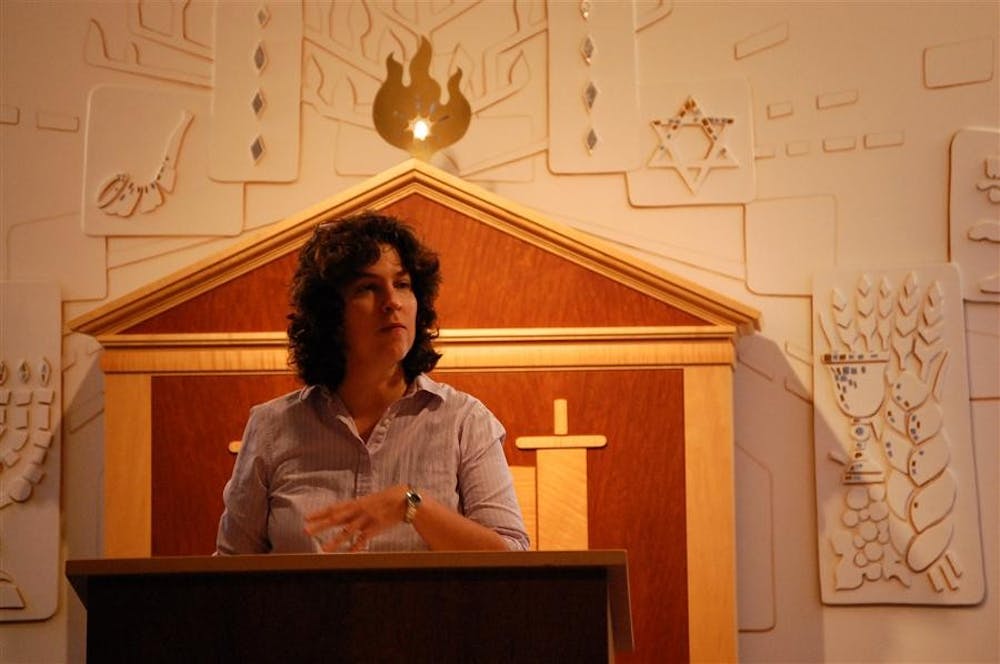Editor's note: All opinions, columns and letters reflect the views of the individual writer and not necessarily those of the IDS or its staffers.
The same places you frequent on the Indiana University campus, such as the Indiana Memorial Union, have also been home to celebrities from a wide range of fields who graduated from Bloomington and went on to successful careers. One of them is the writer Achy Obejas, who publishes books marked by a very personal and contemporary narrative in works of fiction, non-fiction, poetry, testimonies, and even journalistic texts. Obejas grew up in Indiana and attended IU from 1977 to 1979. Her most recent book, “Boomerang,” sums up his literary approach well. It's an inspired collection of bilingual poems (in English and Spanish) on ever-present themes in American society: migration, love, activism, loneliness.
Obejas began to be known shortly after graduating here at IU Bloomington writing about themes related to Latino migration, based on her personal story. She was born in Cuba in 1956 and soon, after the Cuban revolution in 1959, her family decided to migrate to the United States. Her father was an accountant for American companies and didn't agree with Fidel Castro's ideas. Achy Obejas' life in the United States began at the age of six and she became an American citizen. However, she was always officially considered a “Latina” — as all immigrants of Latin American origin are.
Her work reflects her father’s ideas and this condition. In one of her most famous books, “We came all the way from Cuba so you could dress like this?”, she recreates her life story through a character torn between her Cuban origin and American citizenship. But the character never goes back to Cuba. She is a Cuban only because of an imaginary memory of what her life would have been like in Havana compared to the reality she lives in Chicago.
But this is a character created for a work of fiction. In real life, Obejas returned to Cuba at the age of 39 and established a connection with her origins. This experience confirmed her feelings of dual nationality, which have accompanied her all her life and are always very confusing. While she is considered American in Cuba, in the United States she is always Cuban. “I was born in Havana and that single event has pretty much defined the rest of my life. In the U.S., I'm a Cuban journalist, a Cuban writer, somebody's Cuban lover. I'm more Cuban here than I am in Cuba, by sheer contrast and repetition,” wrote Achy Obejas in the statement “Cuban on the Verge” on the Bullfinch Press website.
This is a question that is always present for American citizens of Latin American origin, the so-called Latinx, who make up a large population in the United States. According to the United States Census Bureau, on July 1, 2023, there were 65.2 million Hispanics or Latinos in the United States, making up 19.5% of the total population. This makes Hispanics or Latinos the largest racial or ethnic minority in the country. It is an ethnic group that is completely integrated into American life, exercising a range of social roles — from politicians to businessmen, from workers to shopkeepers, from teachers to artists. But, according to Obejas, they will always be identified as Latinos, as she writes in “Cuban on the Verge”.
A large part of this population is no longer immigrants. They were born here, became citizens and, because of their family history, speak both English and Spanish as their main language. This is the case of Achy Obejas. “There are thousands like me — Cubans born in Cuba, raised in the United States. We're part of the cauldron of ethnicities, the Babel of languages so familiar to Americans. We fit right in,” in the “Cuban on the Verge” statement.
As a Cuban-lesbian-Jewish woman, Obejas can speak from multiple perspectives of diverse social groups, establishing herself as a reference not only among Latinx but also in LBGTQ literary circles. In addition, she is also represented in Jewish literature, and one of her books, “Days of Awe” develops this theme well. Her Jewish roots can be seen in her name. Obejas, in Spanish, means sheep, and among Jewish people it was common to adopt names associated with their occupation.
After graduating from Bloomington, she moved to Chicago and began writing regularly for the Chicago Tribune, where, in 2001, she was awarded a Pulitzer Prize in the explanatory reporting category. In September 2009, during National Hispanic Heritage Month, Obejas gave a lecture at IU Bloomington titled “Navigating Multiple Identities,” addressing the issue of the interwoven facets of identity — race, culture, sexual orientation, gender, and religion — that make us who we are.
Roberto Amado is a doctoral student at IU where he studies Latino and American literature in the Spanish and Portuguese Department.






